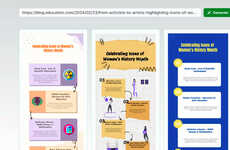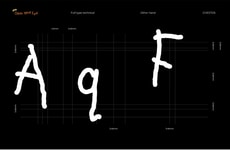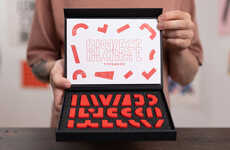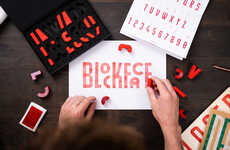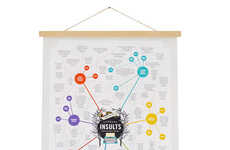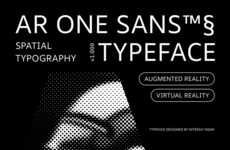
Arthur W. Presser Charts the 'A Brief History of Type'
Romina S. Cortellucci — June 26, 2012 — Art & Design
References: behance.net & designyoutrust
Font fanatics will boldly rejoice for this infograph as it charts A Brief History of Type. The infograph was created by Brazilian-based graphic designer Arthur W. Presser for a Sequential Art Workshop at the Central Saint Martins College in London. The graph charts Presser's vision of the history of typography including the figures Johannes Gutenberg, Nicolas Jensen, Hermann Berthold and others. This hilarious history has each inventor and innovator trying to outdo those who came before him. The format allows the viewer to be educated and entertained.
Though typography's long history forces this infograph to be limited in scope, Presser covers the basics. Plus, by not overdoing the graphic with font intricacies and facts, Presser crafted an unpretentious infograph that is beautifully basic.
Though typography's long history forces this infograph to be limited in scope, Presser covers the basics. Plus, by not overdoing the graphic with font intricacies and facts, Presser crafted an unpretentious infograph that is beautifully basic.
Trend Themes
1. Infographic Education - Creating educational and entertaining infographics offers an opportunity for businesses to communicate important information in a visually appealing way.
2. Minimalist Graphic Design - Developing simple and unpretentious infographics provides a disruption to the trend of overly complex visualizations.
3. Typography Content Creation - Incorporating typography history into content creation offers a unique way to educate and engage audiences.
Industry Implications
1. Marketing and Advertising - Infographics have become a popular marketing tool to deliver information in an attention-grabbing way, allowing businesses to disrupt traditional advertising methods.
2. Graphic Design - The shift towards minimalist graphic design in infographics offers opportunities for graphic design companies to offer sleek, on-brand designs for their clients.
3. Publishing and Journalism - Incorporating typography history into content creation offers a unique way to engage audiences through storytelling and educational content.
2.2
Score
Popularity
Activity
Freshness



